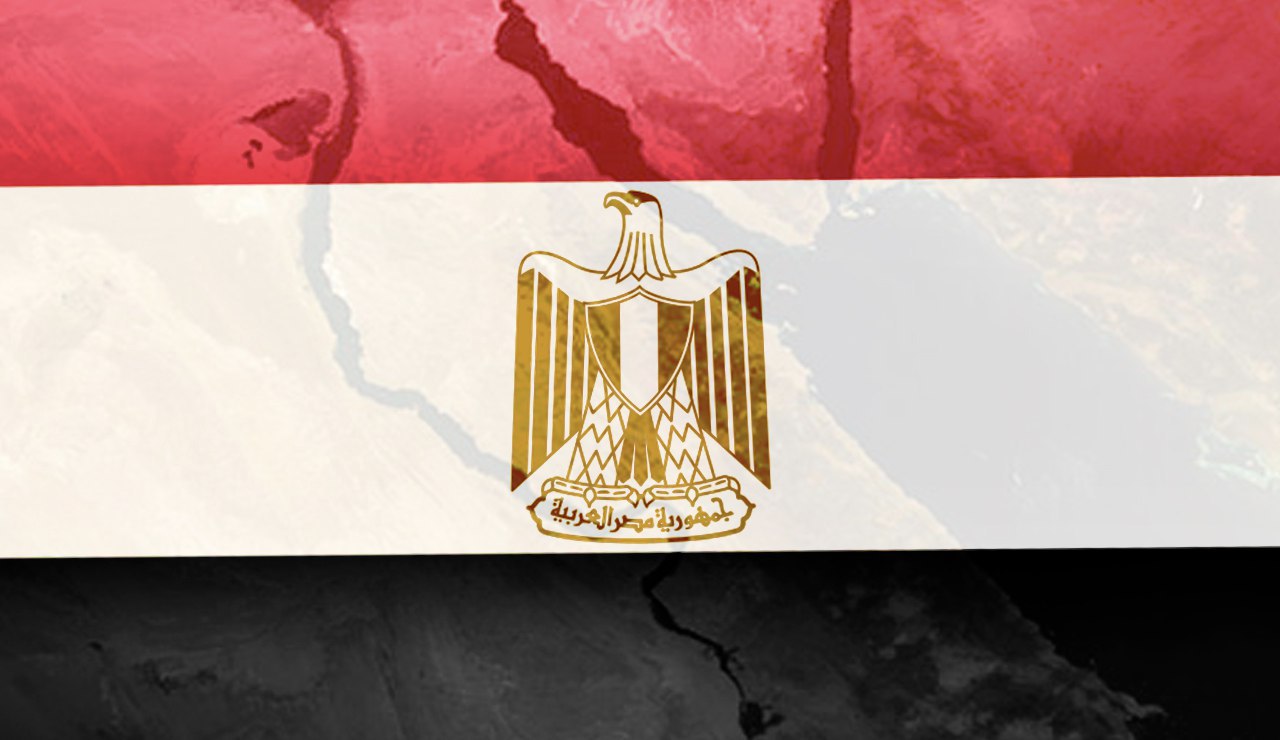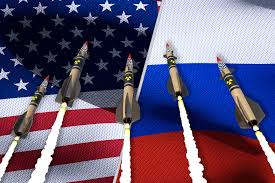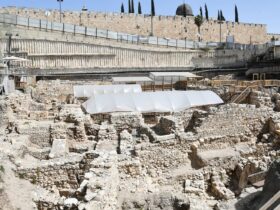By Nardine Ali (Egypt)
A simple picture taken on the top of a skyscraper in Dubai in the United Arab Emirates was enough to reveal the true nature of 41 years of peace between Egypt and Israel.
The patronage of the picture was an Egyptian actor, Mohamed Ramadan who went viral on social media after taking a selfie with the Israeli pop star Omer Adam and soccer player Diaa Sabia at a private party hosted by Emirati journalist Hamad Al Mazrouei in Dubai on November 21, which ignited outrage against the Egyptian megastar.
The photo, according to Ramadan, was spontaneous and casual, adding that he didn’t recognize the nationality of the man photographing with him.
Egypt’s reaction toward the photo was shocking to Israel, which condemned the public and official reaction to the photo, prompting the Israeli foreign ministry to defend the Egyptian actor.
Ramadan, who is also a singer, faces a lawsuit accusing him of offending the Egyptian people filed by lawyer Tarek Mahmoud, to be prosecuted Cairo’s Summary Proceedings Court on December 19, according to Egypt Independent. His membership at the Egyptian Union of Artistic Syndicates was suspended until conducting an investigation over the incident, also, his upcoming TV show “Moussa” was cancelled by the producing company, according to Al Ahram Online.
The photos of Ramadan embracing the Israeli celebrities was widely praised by the Israeli pages directed to the Arab on social media, calling on all Arabs to uphold peace principles as the Egyptian rapper. The State of Israel’s official Arabic Twitter account posted a visual message in Arabic of Lior Ben Dor, who works on the Israeli Foreign Ministry’s North Africa desk, covering Egypt, directed to the Egyptians defending Ramadan.
“Wake up! We’re in 2020. Israel lives in peace with four Arab countries and has contact with most Arab states… we’re not in 1956 anymore,” Ben Dor said in the video that has been viewed over 401,400 times.
Journalist Talaat Ismail slammed Ramadan in his article at Shorouk News on November 23, accusing the actor of betraying the blood of the martyrs killed by the Israelis during wars that extended over 31 years.
“Whom you embraced and bragged about meeting him along with your Emirati host is the son of an entity that raped your land, killed your grandparents,” Ismail said in an article titled “Number 0’s Normalization,” calling on the actor to learn his country’s history to understand why normalization will never be a public choice.
At the state-owned newspaper Al Ahram, the renowned Egyptian politician Osama Al Ghazali Harb defended Ramadan, saying that he committed no crime in having dinner in a brotherly Arab country and “accidentally” posing with a person for a photo.
“This is the first time for me to know that saluting someone is normalization,” Harb said in his article “Mohamed Ramadan’s Crime” published on November 28, expressing his wonder of the attack against the 32-year-old actor, whose country has had official relationships with Tel Aviv since 1979.
Sisi in Juba: what does it have to do with the war in Ethiopia?
Egypt’s President Abdel Fatah Al Sisi made an official visit to the South Sudanese capital Juba on November 28, where he met his South Sudanese counterpart Salva Kiir Mayardit, where they addressed several issues related to the strategic partnership, economic cooperation, military assistance and the utilization of the Nile River, according to Egypt Today.
The official statement by the two governments that followed the unannounced 1-day visit hasn’t revealed the nature of this unusual visit, since Sisi is the first Egyptian president to visit the country that secured its independence from its northern neighbor in 2011. However, experts and analysts from Egypt have suggested that the real reason behind the visit is that it comes at a critical time for the eastern neighbor, Ethiopia, especially amid the crusade led by Ethiopian Prime Minister Abiy Ahmed against Tigray Region.
The Sudanese journalist Mohamed Mostafa Jame’a told aljazeera.net that Sisi’s visit is mainly focusing on the Grand Ethiopian Renaissance Dam (GERD) that has been an issue of conflict between Cairo and Addis Ababa since 2011, and the recent conflict between Ahmed and Tigray, especially given that the relations between Addis Ababa and Juba have deteriorated recently.
“This visit is to send a message to Ethiopia that there is mutual support between Cairo and Juba,” Jame’a told Aljazeera.
According to Jame’a, Cairo is providing the South Sudanese army with military training and logistic support that has achieved the level of joint military exercises. He also proposed that Egypt is seeking establishing a military base in South Sudan, however, these allegations were dismissed by Juba on June 3.
Egypt has desperately defended its share in the Nile River, which will be severely affected by GERD, igniting disputes between the Nile basin countries, Egypt, Sudan and Ethiopia. The recent round of negotiations has witnessed Sudan’s withdrawal, objecting against the Ethiopian obstinacy regarding the obligatory rules of filling and operating the dam, the step that was met by Egypt’s disapproval, according to Masrawy news website.
Worthy to mention that GERD is located at Benishangul region, 40 kilometers away from the South Sudanese borders with Ethiopia.
President Sisi has addressed the dam issue during the visit saying: “The Nile River should be a source of cooperation and development as it represents a lifeline for all Nile basin nations.”
Meanwhile, the Secretary General of the National Congress and member of the Peace Negotiations Committee in South Sudan said Sisi’s visit is a response to the invitation of Kiir to move forward the peace process in South Sudan, denying that it has anything to do with Egypt’s dispute with Ethiopia.
“South Sudan plays according to a code of conduct that stipulates remaining impartial and to not to take sides in the GERD dispute,” the Secretary-General told the Russian news agency Sputnik. He dismissed the allegations of expelling the South Sudanese diplomatic mission from Addis Ababa, asserting that Kiir is expecting the visit of PM Ahmed soon.
On November 26, Ethiopia’s Minister of Water, Irrigation and Energy, Seleshi Bekele announced that his country is planning to start filling the dam with water in June 2021, after Cairo’s declaration of the failure to reach an agreement on a methodology for completing the negotiations in the next stage, during a meeting on the level of water ministers of the three Nile basin to discuss the optimal framework for the ongoing negotiations under the auspices of the African Union.
Ending the siege on Qatar, Trump’s last maneuver in the Middle East
As a final act of US President Donald Trump’s play in the Middle East, White House top aide Jared Kushner paid a visit to Qatar and Saudi Arabia, in an attempt to end the three-year-old conflict between the two Gulf countries.
Kushner, the engineer of the recent normalization deal between Israel and other Gulf countries, United Arab Emirates and Bahrain, has not revealed the reason behind the visit, however, the US newspaper The Wall Street Journal said on November 29 that ending the Gulf rift is the highlight of the visit.
Neither country has commented on the visit, nevertheless, permanent representative of Saudi Arabia to the United Nations Abdallah Yahya Al-Mouallimi said on December 1 that the crisis between Qatar and other Gulf countries might end within 24 hours.
“The relations between Qatar and its Gulf neighbors can improve within hours, if Qatar stopped its support to the terrorists, offering its media platform for the extremist parties and intervening in the domestic issues of the Arab countries,” Mouallimi told the Arabic edition of Russia Today.
Saudi Arabia, the UAE, Bahrain and Egypt severed ties with Qatar in June 2017, due to Qatar’s alliance with Iran, the rival of most Gulf countries, imposing an economic siege on the small peninsula.
Neither Egypt, UAE and Bahrain have commented on Kushner’s visit, but it is understood that they will follow Riyadh’s lead in the region if it decides to normalize the relations with Doha.
Other speculations said that Kushner will discuss with the Saudi Crown Prince Mohammed bin Salman (MBS) including Riyadh to the Arab capitals that held peace deals with Israel, something that Riyadh had repeatedly denied demanding a Palestinian State with its capital as Western Jerusalem.
















Leave a Reply